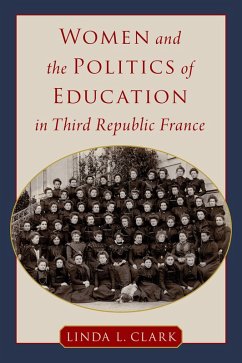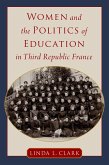In Third Republic France (1870-1940), the directrice of a normal school (?cole normale) for training women teachers was the most important woman representative of public primary education in each department. Her role was central to the republican educational project designed to bolster the establishment of a stable democracy after the Franco-Prussian War. The laicization of public education figured prominently in republican efforts to combat the old alliance of ?throne and altar? favoring monarchy and religious instruction in public schools. Although laymen taught most boys in public schools by 1870, many nuns staffed separate girls' public schools. Thus an 1879 law mandated new departmental normal schools to train lay women teachers. This study of 313 normal school directrices between 1879 and 1940, an important group of professional women not previously studied, explores the challenges they encountered and their responses. Often the target of political hostility, they defended republican schooling as they interacted with local notables and authorities. In an educational system divided by social class as well as by gender, they trained teachers for ?children of the people? attending free primary schools, separate from the elite and less numerous secondary schools. Directrices were expected to be role models for women teachers and to emphasize women's duties as wives and mothers, yet their careers exemplified an alternative to domesticity at a time of much debate about women's appropriate roles. Eventually some pushed against the boundaries of prevailing gender norms as they also joined professional, philanthropic, and feminist associations and sometimes publicly supported women's suffrage. Women and the Politics of Education in Third Republic France deftly examines the history of these women and the nature of their contributions to French society.
Dieser Download kann aus rechtlichen Gründen nur mit Rechnungsadresse in A, B, BG, CY, CZ, D, DK, EW, E, FIN, F, GR, HR, H, IRL, I, LT, L, LR, M, NL, PL, P, R, S, SLO, SK ausgeliefert werden.









